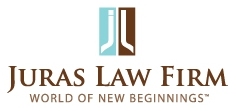As the COVID-19 pandemic continues, we are receiving questions from our immigration clients regarding whether or not they are eligible to seek unemployment insurance benefits in the event of a layoff, reduction in force or termination.
Are you eligible for unemployment insurance? It depends. Each state has different unemployment insurance eligibility requirements. In Arizona, for example, individuals filing a claim for unemployment insurance benefits must indicate that they are able to work, available for work, and actively seeking work. In order to be “available for work,” you “must be ready and willing to accept full-time work when offered without restrictions.” Consequently, it depends on your immigration status and applicable case law to determine if you are considered “available for work” when you are unemployed.
Thus, if you are only authorized to work in the U.S. for a single employer (e.g., holding H-1B or L-1 status) and lose your job, you generally would not qualify because you are not considered “able and available to work” when you are unemployed.
On the other hand, if you have an employment authorization document (e.g., adjustment of status applicants, spouses of E or L status holders,
certain H-4 spouses of H-1B workers, DACA recipients, refugee or asylee), you would generally be “available for work” for another employer. The same applies to lawful permanent residents. Undocumented workers are not “available for work” because they are not legally authorized to work in the U.S.
Please note at that this is only an overview of the unemployment benefits for immigrants and non-immigrants and is not intended as legal advice. IF you were laid off and would like to consult an experienced immigration attorney, calls us at 480-425-2009 or contact us via our website and we will help you determine the best options in your situation.
